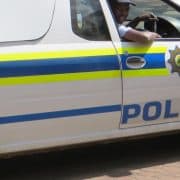|
Getting your Trinity Audio player ready...
|
It is possible to combat police corruption, write Johan Burger and Stefan Grobler of the Institute for Security Studies (ISS). But it depends on having the right leaders and staff, and sufficient capacity in place.
The South African Police Service (Saps) is developing a draft anti-corruption strategy – its finalisation was planned for the beginning of 2016/2017, but to date, write Burger and Grobler, it is unclear how far this has come or indeed, if there is progress at all.
“The finalisation of the department’s Anti-Corruption Strategy (ACS), was delayed due to the change in top management and has been prioritised for completion during the first semester of 2016/2017 to ensure that it will be implemented during the same financial year,” the Saps annual report for 2015/16 states.
Among other measures, the ACS makes provision for the establishment of “a dedicated capability in the Detective Service to conduct criminal investigations against members allegedly involved in corrupt and fraudulent activities, alongside the DPCI and IPID.”
In a new policy brief written for ISS, Burger and Grobler argue that the proposed new internal anti-corruption facility is a sound idea, especially in light of the fact that “corruption has infested the Saps to the extent that public confidence and trust in the police have been seriously eroded.”
The two are well placed to argue for such an idea. Retired police brigadier Grobler was head of the police anti-corruption unit from 1996 to 2003, and Burger, now an ISS consultant, is a former police major-general.
The possibility of these plans coming to fruition is “promising”, they write. Current Saps management appears to be set on finalising and implementing the ACS, although the reason for the delay is unclear, given that it is over five years since it was formally adopted. Senior sources in Saps told Burger and Grobler that because of former police minister Nathi Mthethwa’s lack of support for the strategy, other top police management officials were apparently reluctant to drive the initiative forward as a result.
As already mentioned, Saps has also stated that the ACS was delayed because of changes in top management.
Current mechanisms for tackling police corruption
Currently, responsibility for addressing police corruption appears to lie with certain mechanisms such as:
- The Integrity Management Unit of the Directorate for Priority Crime Investigation (also known as the Hawks).
- The Saps Inspectorate Division (now incorporated under Management Interventions)
- The Saps Internal Audit Component.
- The Integrity Management Section of the Saps Personnel Management Division.
However, apart from the Hawks’ Integrity Management Unit, these mechanisms are designed mainly for detecting and reporting corruption – not investigating it. As for the Hawks themselves, their mandate is limited primarily to corruption allegations against their own members and other Saps members only if they occupy the rank of colonel and above. This means they may investigate just 2% of all Saps members.
Luckily, write Burger and Grobler, the previous presence of an anti-corruption unit has provided several lessons which may be taken forward in the structuring of a new unit.
Foremost among these, they write, is that Saps must not sit back and wait for corrupt acts to be reported, as both corrupter and corruptee have their own interests to consider and neither will report the incident. There is also the possibility of harassment, intimidation and victimisation for those who are tasked with investigating their own.
Police investigating police
Why is it so critically important that the Saps have its own internal dedicated anti-corruption unit?
The Public Service Commission, reporting in 2001 on domestic anti-corruption agencies, expressed doubt that such a unit would be effective, because “police investigating police is not an ideal situation”.
Grobler and Burger feel differently. They argue that there are several advantages to such a situation, including the fact that nobody knows the police better than the police themselves and therefore they are the ones who can most effectively tackle the ‘tricks of the trade’ used by corrupt police officers.
Furthermore, experienced police detectives attached to such a unit not only bring with them their police experience, write the authors, but they are also able to develop a unique expertise for this kind of investigation.
Such a unit, however, will always be working in a hostile environment. Because of this, the men and women selected must be exceptionally skilled individuals and able to meet a number of minimum requirements. They must also be regularly evaluated and tested, and protected from intimidation and influence by colleagues whom they may have to investigate.
And for any chance of success, an integrated anti-corruption strategy needs to meet three key objectives:
- Building an organisational culture that promotes integrity and supports professionalism;
- Increasing accountability of those involved in police misconduct and criminality;
- Promoting community awareness of and engagement with the strategy.
Corruption-busting capacity dwindling
The last time the South African Police Service had an internal special investigating unit focusing on corruption was in 2003. The anti-corruption unit (ACU), established in 1996 under George Fivaz, had a national branch and nine provincial branches, with 17 units in operation. But by 2006, new Saps commissioner Jackie Selebi had closed it, and around 250 other special investigating units, down. One of the effects was a diminishment in the capacity of the police to fight corruption in its ranks.
The Scorpions were established in 2001 with the mandate of prioritising and investigating particularly serious criminal or unlawful conduct committed in an organised fashion, or certain offences or unlawful conduct. However, in 2009 that unit had been incorporated into Saps and was known as the Directorate for Priority Crime Investigation or Hawks. This new unit has not achieved the impressive results that the Scorpions did.
Saps once boasted 537 specialised units which focused on a wide variety of crimes, but because of well-intentioned but ill-considered restructuring, it lost much of its investigative capacity between 2000 and 2009.
In 2000, the ACU investigated about 4 000 corruption cases annually, write Burger and Grobler. “In stark contrast, the 2015/2016 Saps annual report states that only 1 057 incidents of police corruption were reported during that particular financial year. This is slightly up from the 990 incidents the previous year.”
This shows how corruption fighting has become less of a focus or priority within Saps over the years, although corruption itself has grown into a persistent problem – this alone is ample justification for the establishment of a dedicated internal anti-corruption unit.
It is also a worrying statistic, because compared to today’s Saps member complement of around 152 000, there were about 50 000 fewer police members in 2000. This means that, although there are around a third more members in today’s Saps than there were 16 or 17 years ago, the Saps is now investigating 75% fewer incidents of corruption.








